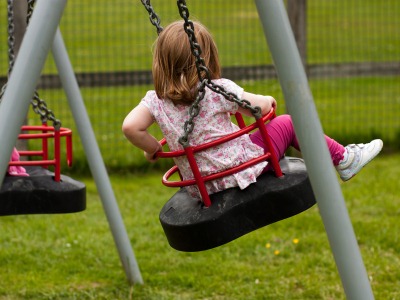
Aimed at policy makers and both experienced and new social workers, ‘Re-imagining Child Protection: Towards humane social work with families’ is, according to its authors, an overdue examination of a flawed child protection culture.
It argues, particularly in relation to more deprived families, that only a radical overhaul of the system will be able to fix this.
“We consider that the system isn’t serving anyone well, not children, families or social workers,” says Brigid Featherstone, professor of social care at the Open University and one of the book’s three authors. “It has become highly risk-averse and too obsessed with removing the child from the family home.”
As counter-intuitive as it may sound, the fault line running through this approach to safeguarding vulnerable young people is that it focuses primarily on the child, she says.
“Of course, we agree that this is important, but the young person comes from a family and a community and has an identity formed by this background,” explains Featherstone. “We have to honour these relational bonds and look more at kinship care and placing kids with aunts and uncles, for example.”
An individual understanding of what is best for the child should entail working with the parents. “We need to know why the parents are in difficulties as they are not just individuals making bad decisions.
“A more holistic approach is required whereby projects are designed to work with the family in relation to issues such as poverty, trauma and drug abuse, which don’t compromise the safety of the child.
“It’s not expensive because this government’s legacy is that many centres, such as Sure Start, are not being used due to cuts in expenditure. We should utilise these buildings by sending in teams of care workers and establishing a team-based, family-focused and neighbourhood-based approach, as opposed to an individual, social worker model.”
Featherstone maintains that an ethic of care is still to be found in marginalised communities which can be mobilised by workers operating with and within the community.
“The system design is all wrong. Social workers are based in large offices situated away from the community and have to drive to an area they don’t know.
“They then go into a family home armed with anxieties and fearing only for a kid’s safety. It’s too much about preventative social work and so people don’t trust the social worker.”
Held over three days in late 2012 and early 2013, The Care Inquiry involved children, adoptive, birth and foster parents, residential workers and academics meeting to discuss the needs of vulnerable and at-risk children and the systems and practices in place.
“The key message the children gave us was that the system breaks relationships,” explains Featherstone. “They said that when they leave foster care they aren’t encouraged to see their foster parents again. Children in residential homes were also upset that unlike those who are fostered, they can’t stay where they are until they are 21.
“This fracturing, caused as it is by a mindset that regards a child as needing to be rescued from a deprived family, has become too entrenched. But there is a model of how to work on the ground and give parents peer support.”
“This means a more family-minded, humane practice, where children are understood as rational beings, parents recognised as people with hopes and needs and deprived families seen as having extraordinary capacities for care and protection.”
“In that crucial context, we hope this book opens up new conversations in a climate that is often dominated by fear and blame, and also offers support to children to stay safely within their families of origin and to the social workers who work with them.”
Re-imagining Child Protection: Towards humane social work with families, by Brigid Featherstone, Susan White and Kate Morris, is published by Policy Press.



 Bournemouth, Christchurch and Poole
Bournemouth, Christchurch and Poole  Hampshire County Council
Hampshire County Council  Lincolnshire County Council
Lincolnshire County Council  Norfolk County Council
Norfolk County Council  Northamptonshire Children’s Trust
Northamptonshire Children’s Trust  South Gloucestershire Council
South Gloucestershire Council  Wiltshire Council
Wiltshire Council  Wokingham Borough Council
Wokingham Borough Council  Children and young people with SEND are ‘valued and prioritised’ in Wiltshire, find inspectors
Children and young people with SEND are ‘valued and prioritised’ in Wiltshire, find inspectors  How specialist refugee teams benefit young people and social workers
How specialist refugee teams benefit young people and social workers  Podcast: returning to social work after becoming a first-time parent
Podcast: returning to social work after becoming a first-time parent  Podcast: would you work for an inadequate-rated service?
Podcast: would you work for an inadequate-rated service?  Family help: one local authority’s experience of the model
Family help: one local authority’s experience of the model  Workforce Insights – showcasing a selection of the sector’s top recruiters
Workforce Insights – showcasing a selection of the sector’s top recruiters 

 Facebook
Facebook X
X LinkedIn
LinkedIn Instagram
Instagram
Comments are closed.